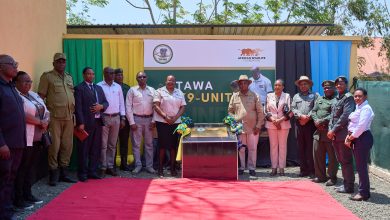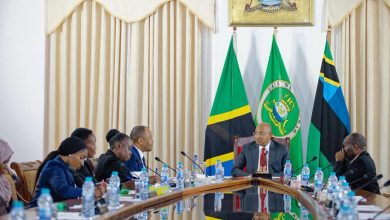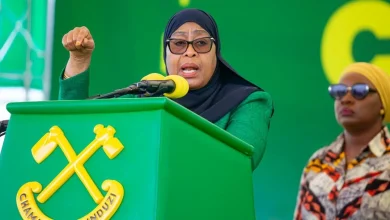G25 African coffee summit opens in Dar today

DAR ES SALAAM: SEVEN Heads of State are expected to join key stakeholders from 25 African coffee-producing nations as the 3rd G25 African Coffee Summit begins today in Dar es Salaam.
The two-day summit, hosted by Tanzania’s President Samia Suluhu Hassan, will focus on increasing Africa’s coffee production and global market share, while creating more opportunities for youths and women in the sector.
The summit’s theme is “Unlocking employment opportunities for the youth through regeneration of the African coffee industry.”
Speaking during a press conference recently in the Coast Region, Government Chief Spokesperson and Permanent Secretary for the Ministry of Information, Culture, Arts and Sports, Mr Gerson Msigwa, said the summit will provide an opportunity for Tanzanian coffee farmers to forge partnerships and networks with their counterparts from other countries, thereby creating new markets and investment opportunities.
Mr Msigwa stated that the high-level event, through platforms such as Business to-Business (B2B) meetings, will enable coffee producers, policymakers, traders, manufacturers, ministers and Heads of State across the continent to chart a new course for upgrading the coffee production value chain.
He noted that Tanzania currently contributes 240 million US dollars (over 621bn/-) to the total global coffee market, which is valued at 500 billion US dollars.
Africa, the birthplace of both Arabica and Robusta coffee, boasts the largest number of coffee growing countries.
Over 53 per cent of the rural population in the 25 coffee-producing nations are involved in coffee farming, with an estimated 10 million households relying on the coffee value chain for their livelihoods.
Coffee plays a crucial role in foreign exchange earnings and contributes significantly to tax revenue and GDP in several African countries.
However, the African coffee sub-sector faces numerous interconnected challenges, including low farm-level production and productivity, limited value addition infrastructure and lack of access to affordable finance.
These issues are exacerbated by climate change. Despite these hurdles, the coffee sector holds immense potential for unlocking inclusive growth and prosperity in Africa, particularly with the opportunities presented by the African Continental Free Trade Area (AfCFTA) to expand regional coffee trade, promote domestic consumption and strengthen economic integration.
The summit will open with a ministerial session today, where African agriculture ministers and coffee industry leaders will deliberate on strategies for strengthening the sector.
Tanzania’s Minister for Agriculture, Hussein Bashe, will lead discussions, which include the presentation and adoption of the Dar es Salaam Declaration—a key policy document outlining Africa’s coffee industry growth plans.
This declaration builds upon previous declarations and commitments made at earlier summits.
The Inter-African Coffee Organisation (IACO), at its 61st Annual General Assembly in Kigali, Rwanda in 2021, initiated the G25 African Coffee Summit process to address the underperformance of the sector.
The first summit, held in Nairobi, Kenya in 2022, resulted in the Nairobi Declaration integrating coffee as a strategic commodity in the African Union’s Agenda 2063.
The second summit, held in Kampala, Uganda in 2023, produced the Kampala Declaration which, among other things, successfully advocated for the inclusion of IACO as a specialised agency of the African Union.
The event will culminate tomorrow with a Heads of State summit, featuring statements from President Samia Suluhu Hassan, Angolan President and AU Chairperson Joao Manuel Lourenco and other African leaders.
It will also include the signing of the Dar es Salaam Declaration, symbolising Africa’s collective commitment to boosting coffee production and trade.
Other key highlights include an exhibition tour by the Heads of State, showcasing innovations in coffee production and a press briefing by Minister Bashe and IACO Secretary-General Ambassador Solomon Rutega.
A critical focus of the summit is youth participation, recognising that the aging coffee farming population and lack of youth engagement threaten the industry’s future. The summit will explore ways to attract and retain young people in the sector.
This includes addressing barriers like limited access to finance and infrastructure, promoting entrepreneurship and innovation, encouraging the use of technology in coffee farming and tackling systemic challenges such as land tenure issues and gender inequality.





